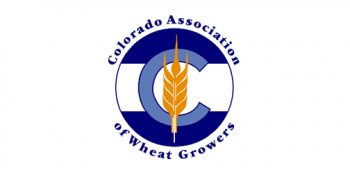Today, the Senate Agriculture Committee is holding a hearing on the Current State of the Farm Economy, with Agriculture Secretary Tom Vilsack testifying. The National Association of Wheat Growers (NAWG) submitted testimony to the Committee discussing the dire economic conditions in wheat country, conveying the importance of current safety net and risk management tools. With Congress in session for only a limited time this month, NAWG is pleased to see that the Senate Ag Committee has elevated the discussion of the state of the farm economy, particularly given the current low prices.
“Strong support for our nation’s farmers is critical when the agriculture economy declines to the level we are experiencing today,” says NAWG President Gordon Stoner, a wheat grower from Outlook, Montana. “With severely depressed wheat prices and countries like China violating their WTO commitments, American wheat growers are unable to compete globally, let alone cover their own cost of production. Now, more than ever, it is important that we have a strong farm safety net and risk management tools in place to support the growers who feed the world.”
“As farmers across the state of Colorado begin seeding their 2017 wheat crop while facing the daunting realities of depressed wheat prices, global trade challenges, and fear based attacks by special-interest consumer groups, it is vitally important that farmers and the agricultural industry come together to put forth solutions for these complex and difficult challenges,” says Colorado Association of Wheat Growers (CAWG) President Brian Brooks, a wheat farmer from Walsh, Colorado. “We appreciate the Committee raising the concerns of all farmers in this depressed farm economy.”
In recent weeks, the price of wheat has dipped to decade-lows and is not expected to rebound anytime soon. With prices so low, Marketing Assistance Loans (MALs) and Loan Deficiency Payments (LDPs), which provide short-term cash flow assistance, have been triggered for the first time in several years. Although this kind of support is helpful for growers, it is critical that in the next Farm Bill, functional farm safety nets are maintained, to protect farmers against circumstances outside their control.
This is particularly important for a new generation of wheat growers, who may have started out when prices were better, and are not yet properly equipped to survive through periods of extremely low prices. Support programs and risk management tools must be in place, to ensure that the increasingly older generations of farmers are succeeded by a new generation of younger farmers.
To prepare for the next Farm Bill debate, NAWG is working on developing priorities by gathering feedback through a grower survey. Additionally, NAWG is hopeful that this hearing will help policymakers better understand the economic circumstances that wheat growers are facing today.
While NAWG and CAWG are pleased to see that the Senate Ag Committee is paying attention to the declining farm economy that is hurting wheat growers, they urge Congress to continue that support by protecting Title 1 crop insurance programs in the next Farm Bill. Congress should also oppose destructive efforts by non-agriculture think tanks to undermine the current structure of the crop insurance program and push policies that would hurt farmers. It is the voices of farm organizations which advocate for the survival and success of farmers that should be heard in the conversations about the farm economy. With the farm economy declining, it is imperative that growers are given the support they need to carry on feeding America and the world.

Leave a Reply